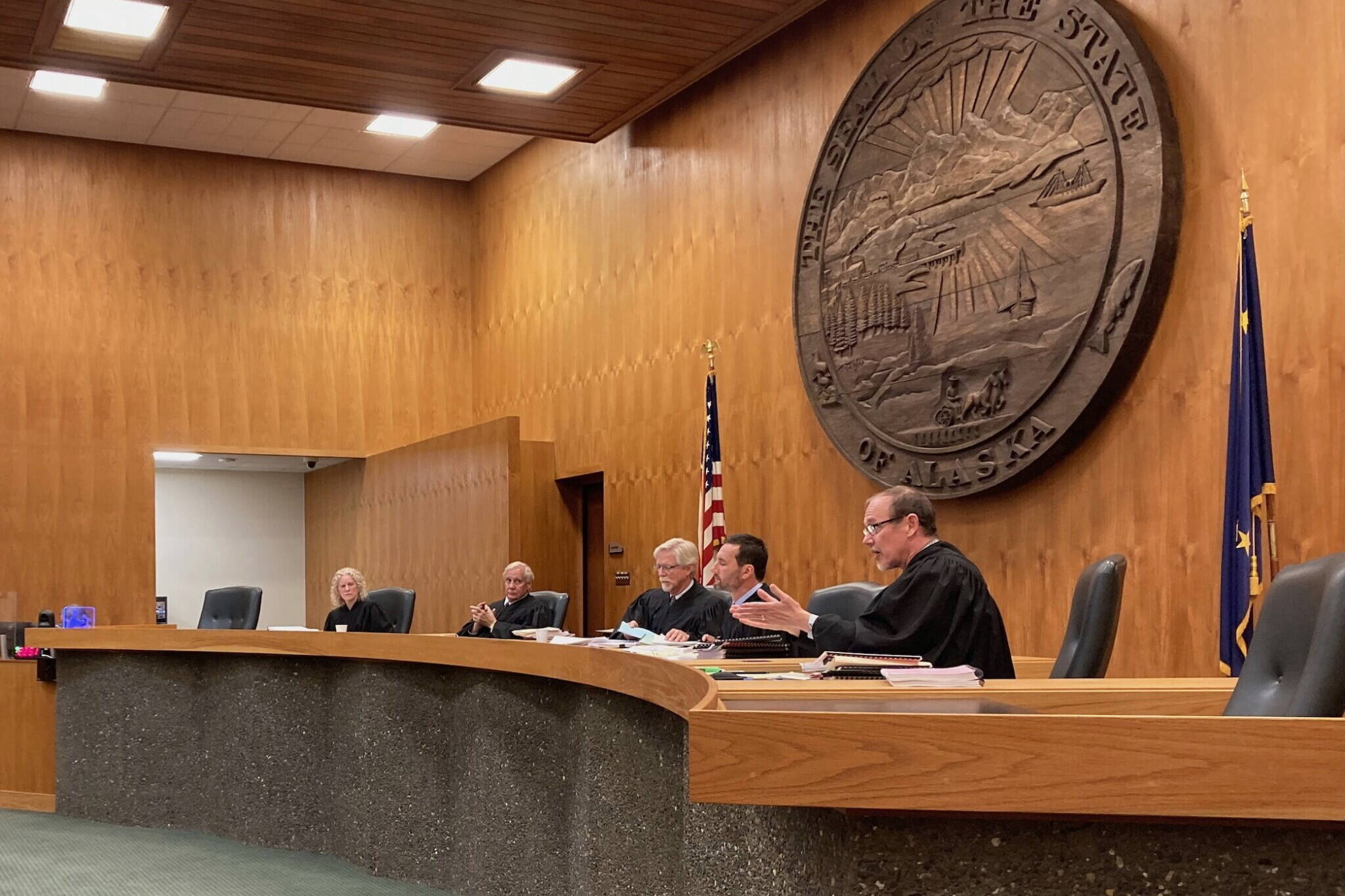Supporters of Alaska’s ranked choice election system are asking the Alaska Supreme Court to rule on one final attempt to keep a repeal measure from this November’s election ballot.
Earlier this month, Anchorage Superior Court Judge Christina Rankin ruled that there was insufficient evidence to disqualify the measure from a statewide vote. While Rankin disqualified some signatures from a petition seeking to force a repeal vote, a recount by the Alaska Division of Elections confirmed that enough signatures remain for that vote to take place.
On Thursday, opponents of the repeal initiative asked the Alaska Supreme Court to review an element of Rankin’s decision.
In a document called a statement of points on appeal, they say Rankin was wrong when she allowed the Alaska Division of Elections to permit signature gatherers the ability to correct minor mistakes with the ballot measure petition after the submission deadline.
In June, Rankin wrote that the division has allowed petitioners the ability to correct minor mistakes as far back as 2015 and that it is allowed under a 2006 Alaska Supreme Court decision that said in part “that the right to initiative is not to be defeated by technical rule violations.”
If the high court rules against Rankin’s decision, it could leave petitioners with insufficient signatures for a 2024 vote.
Attorney Scott Kendall, representing opponents of the repeal initiative, said by text message that the Alaska Supreme Court has never been asked whether ballot measures should be held to the strict timelines that apply to candidate filings.
“It is true that if the appeal does not succeed, then (the ballot measure) will most likely appear on the ballot,” he wrote by text.
The Supreme Court has set an accelerated timeline to hear the case, with written arguments scheduled to finish by Aug. 19. The court has scheduled oral arguments for Aug. 22, two days after the statewide primary election.
The court must rule quickly: Ballot designs must be ready in time for ballots to be printed and mailed to overseas voters by Sept. 21.
• James Brooks is a longtime Alaska reporter, having previously worked at the Anchorage Daily News, Juneau Empire, Kodiak Mirror and Fairbanks Daily News-Miner. Senior reporter Claire Stremple contributed to this article. This article originally appeared online at alaskabeacon.com. Alaska Beacon, an affiliate of States Newsroom, is an independent, nonpartisan news organization focused on connecting Alaskans to their state government.

